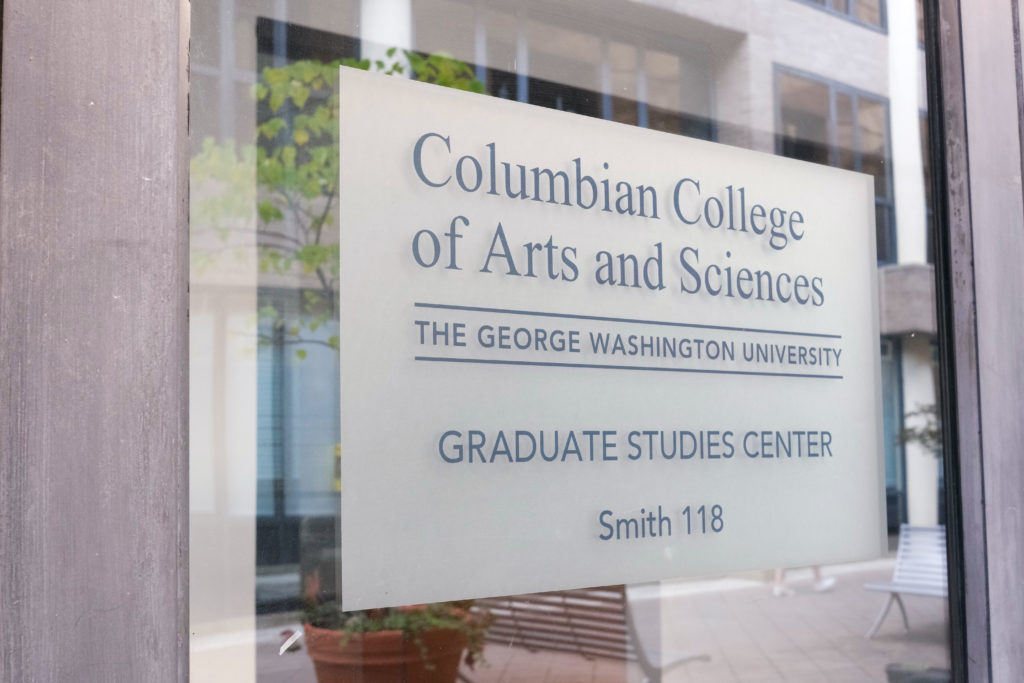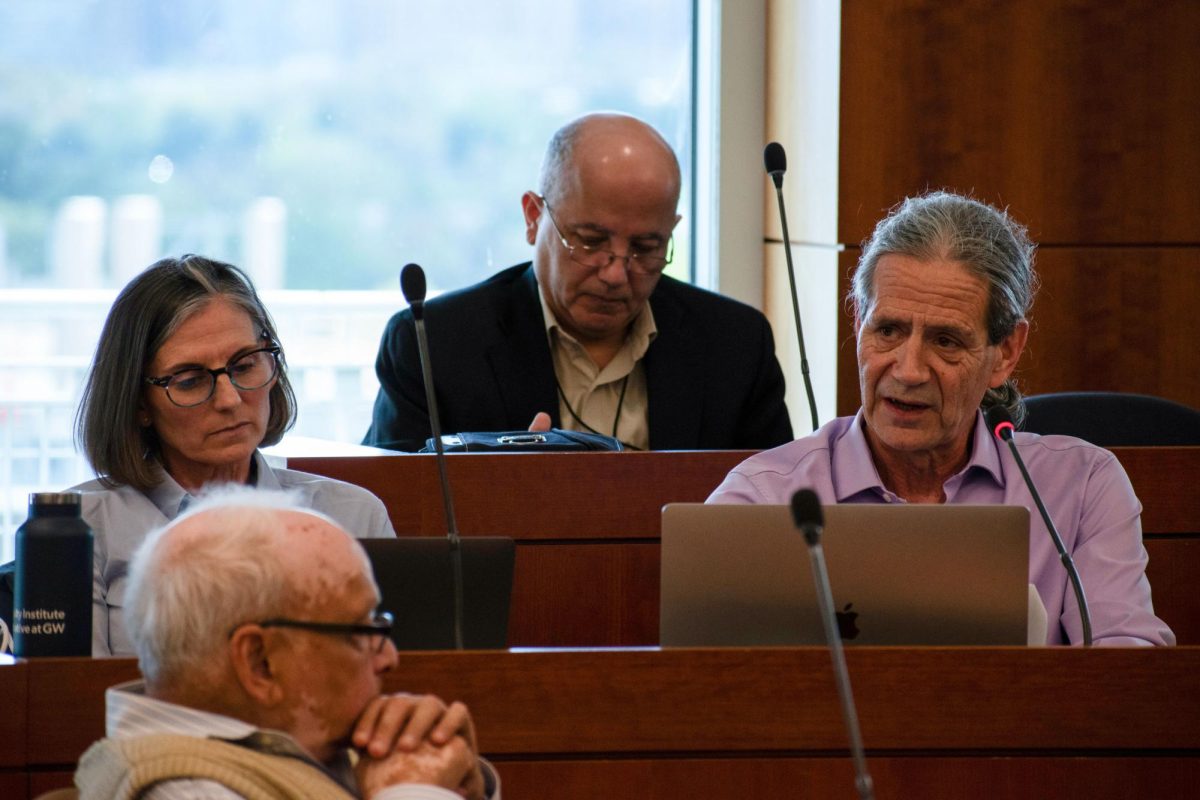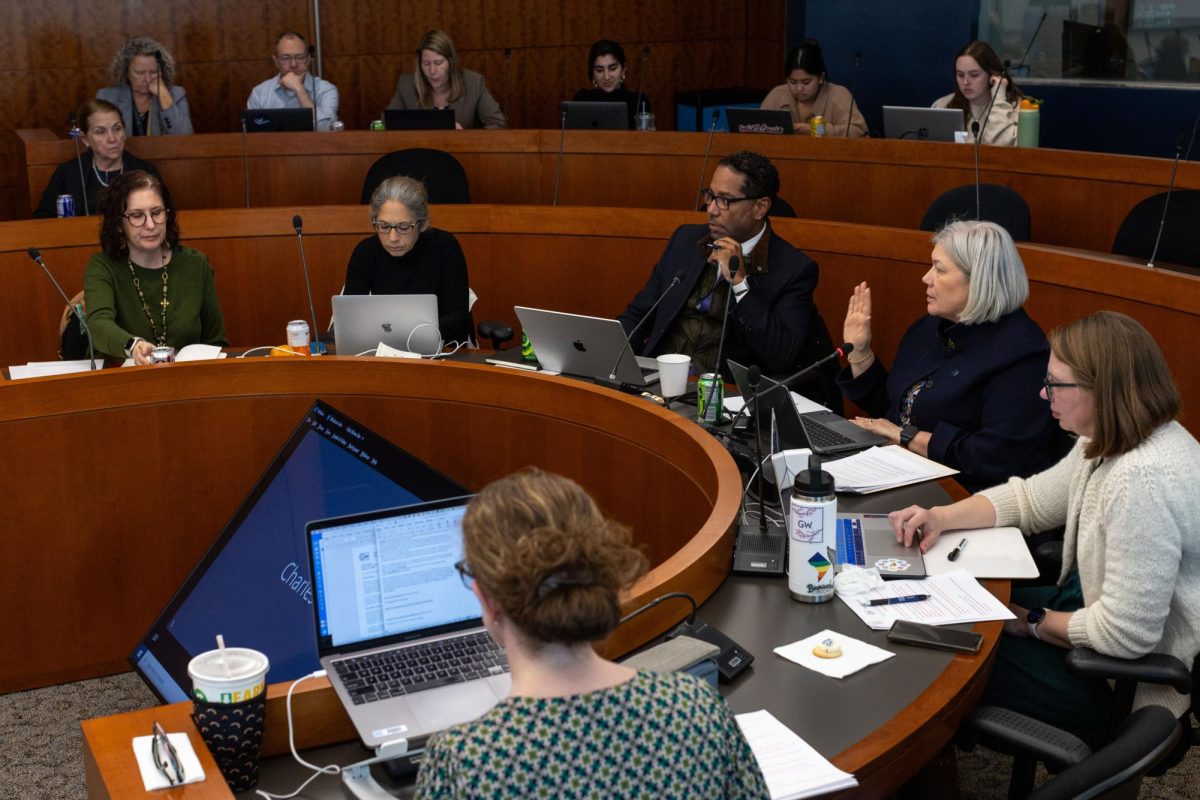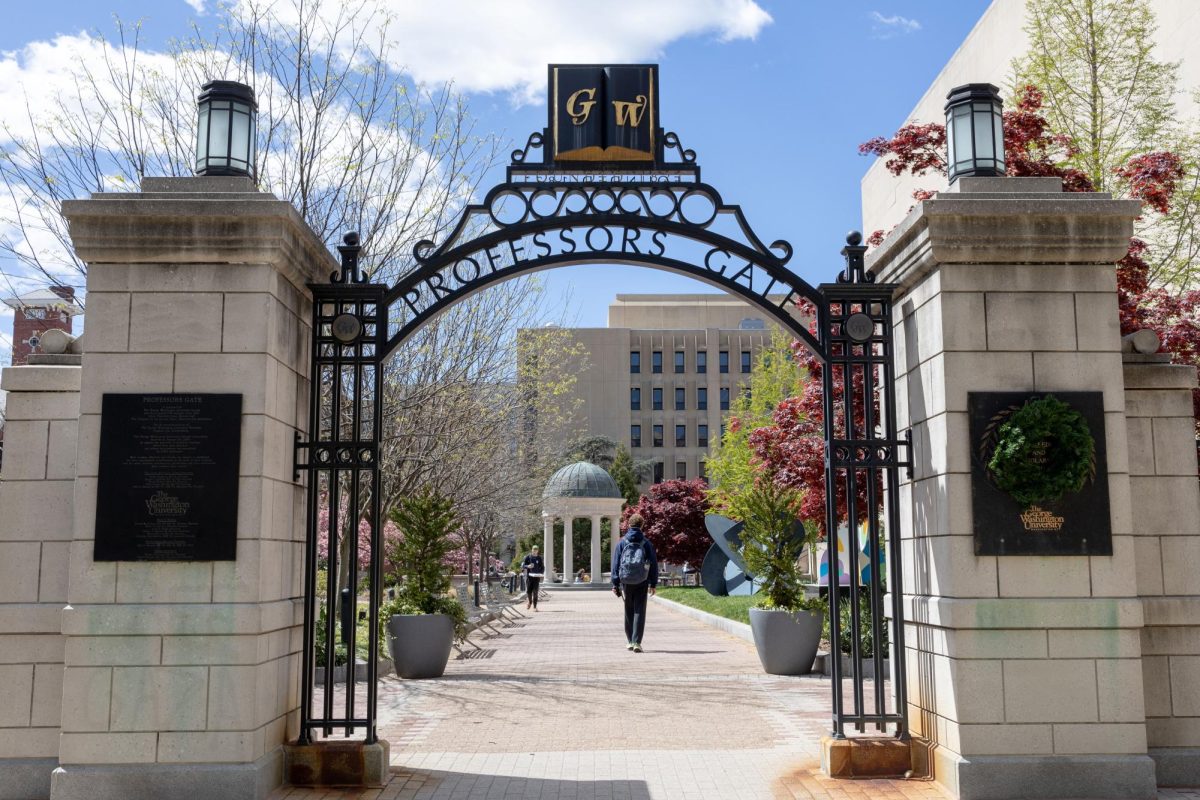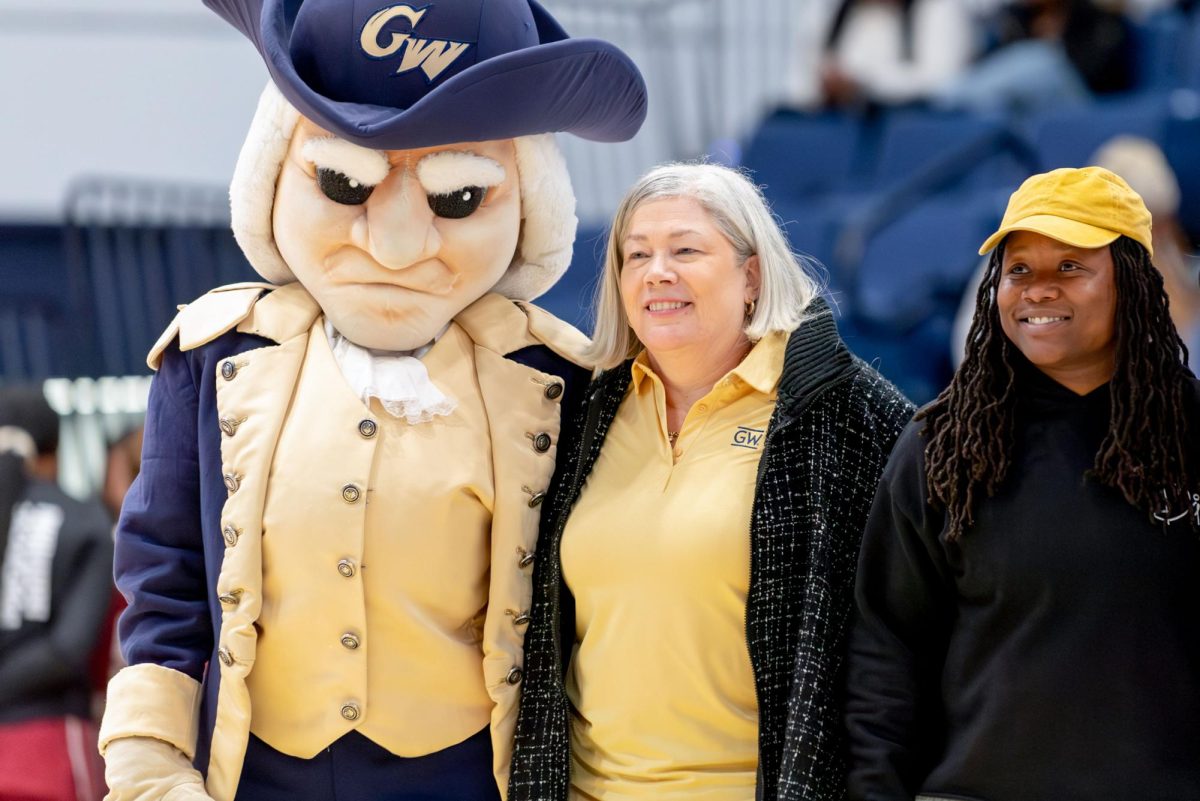Faculty senators in the humanities said GW’s newly announced academic priorities and financial investments are evidence of an ongoing lack of support for professors, departments and research in their studies.
Officials announced at a Faculty Senate meeting earlier this month that they would adopt new academic priorities, including academic medicine, data science, equity and social justice and sustainability and climate change and invest $50 million in 14 new, endowed professorships to bolster GW’s medical enterprise. Three faculty senators said the new priorities are not unique to GW and officials should focus on improving academics across all schools and departments, not just the STEM-related academics.
Provost Chris Bracey said the planning process for the new priorities included consultation from the Board of Trustees deans, program directors and faculty in all GW’s schools and colleges. He said the academic priorities are a starting point for “comprehensive” planning.
The University has remained without a strategic plan since officials announced in 2020 that the COVID-19 pandemic rendered former University President Thomas Leblanc’s strategic plan “obsolete.” Part of Leblanc’s plan included an initiative to cut undergraduate enrollment by 20 percent and increase the share of STEM majors by 30 percent, which drew backlash from humanities professors who said the plan could lead to “major” funding cuts to humanities departments.
“The academic priorities are a starting point for comprehensive planning and are not intended to represent all the areas in which we will focus,” Bracey said in an email. “These priorities and many other historic strengths across all disciplines demonstrate our continued commitment to enhancing GW’s global reputation, leveraging GW’s strengths and competitive advantages and positioning GW for leadership and impact in key areas of global importance.”
Faculty senators said officials should bolster the humanities’ funding and faculty in the wake of rising enrollment numbers across departments.
Alexa Alice Joubin, a faculty senator and a professor of English, said she met with the three other faculty senators who represent the humanities, after the senate meeting earlier this month to discuss how to raise awareness about their concerns regarding the inequitable support given to the humanities.
“It’s not really about the current initiative,” she said. “It’s because there has been a long-term problem, there’s a pattern of not giving enough support to the humanities, even though we constitute the core of GW, the core of Columbian College.”
Joubin said it is “problematic” for the University to not distribute resources to its departments equitably because humanities play a key role in advancing GW’s academic priority of equity and social justice and faculty’s curriculum.
“I believe GW historically has strength in the humanities and a reputation and our unique position in the city,” she said. “All of these are areas that the administration can continue to invest in while also supporting other disciplines, so the one-sidedness I think is the trigger.”
Joubin said many courses that Columbian College of Arts and Sciences faculty members teach have “inflated” class sizes as a result of an increase in enrollment in CCAS and a slowdown in hiring new faculty within the school.
Full-time enrollment in CCAS increased by more than 150 students between 2020 and 2021, according to institutional data. The number of faculty the University hired last fall was six percent lower than the number hired in fall 2020, despite the elimination of a hiring freeze that officials put in place to mitigate the financial impact of the COVID-19 pandemic.
“The value students are getting is diluted because now people have to sit in large classes as an anonymous face, as opposed to a class of 15 where you have a lot of interaction with the professor,” she said.
Katrin Schultheiss, a faculty senator and an associate professor of history, said while she sees the value of bolstering STEM education, the University often leaves the humanities out of the conversation when it discusses its mission to be a “comprehensive” institution that builds strength in a variety of disciplines.
“I understand how the humanities play an important role in all of the initiatives that were listed, and I assume the administration understands that as well,” she said. “But I do think that I would like to see more highlighting or direct allusions to the value of the humanities in all of these discussions about a comprehensive University.”
Schultheiss said the academic priorities are largely in line with the priorities of other higher education institutions and do not reflect a desire to be “outside of the norm” of other higher education institutions.
“We have incredible strengths at this University,” she said. “One of those is the many research parts of the University and teaching units of the University that work on political issues and issues of engagement in government. Those are real strengths of the University, and yet there seems to be a real reluctance to really just run with that.”
Schultheiss said she would like to see the University increase efforts to highlight the humanities in marketing materials and allocate more funding to departments and research in the humanities.
“It’s often an afterthought,” she said. “It’s like, ‘Well yes, of course, the humanities. We love the humanities. The humanities are wonderful.’ But that places it almost in an ornamental role rather than as central to the mission of the University.”
Heather Bamford, a faculty senator and a professor of Spanish, said the University should prioritize hiring “humanists” in tenure-line positions and provide more opportunities for promotion to current faculty in the humanities.
“These priorities do not include the humanities in any specific and immediately visible way, though there are countless GW humanities faculty who work in these areas and are impacted by them,” she said in an email.
Bamford said the University should consider adding an academic priority of “critical thinking,” which can apply to all disciplines and work to prioritize the connections between the humanities and the new academic priorities.
“Each semester I witness students make brilliant connections between historical documents and past events, literary works, philosophy, current events and their personal experiences,” she said. “This is what I’m here for. None of this is clear in the priorities, but it is happening in and among them.”


